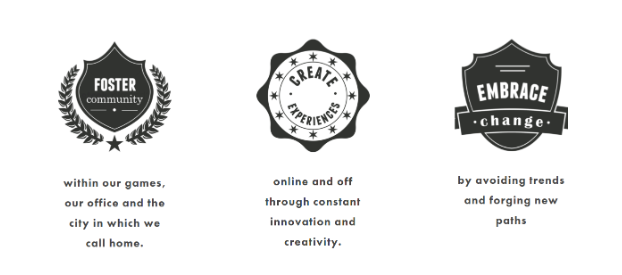
Software development is always a work in progress.
Technologies are emerging and evolving yearly, if not monthly. So, even if you hire an expert developer, chances are they’re going to have to build on their skills to help your company stay competitive.
Training, regardless of the form, can help you get the most out of your engineering team.
There’s even data to support that devs themselves want to learn as their career progresses.
Of course, most companies would agree that training new developers is a non-negotiable step in the onboarding process.
However, this article aims to describe why it’s vital to train developers at all career stages.
So, let’s dive in.
Table of Contents
Building a more effective onboarding process
Hiring two developers with similar backgrounds doesn’t guarantee that their programming skills are at the same level.
If you start off the onboarding process by providing your new developers with standardized training, you’ll be able to get everyone on the same page.
As we noted in our article on excellent employer branding, Google has high standards for accepting developers.
And yet even they provide training to all new software engineers, known as Nooglers.

During onboarding, Nooglers are equipped with online learning materials, such as checklists, codelabs, and codewalks, which they use to follow tutorials and solve tasks using Google technologies.
Here are some publicly available Google codelabs you can browse.

This part of the onboarding process ensures that every dev has an equal starting point when it comes to familiarity with the tech stack and work processes.
The next step is on-the-job training, which at Google doesn’t last too long.
Like many other companies, Google assigns new devs a two-week starter project.
Starter projects are there to let each dev apply the theoretical knowledge they’ve acquired earlier.

Get unreal data to fix real issues in your app & web.
When you adopt a standardized approach to training as Google does, you ensure that you’re providing a consistent onboarding process.
Since not all companies have the time to develop their own training programs, some choose to outsource training to businesses specializing in developer training.
One such company is Hack Reactor.
Hack Reactor, a company that trains developers within enterprises, considers training a crucial aspect of harmony within teams.

By including training in the onboarding process, you help new developers understand how the things they already know or are yet to learn work in your projects and company.
Developers whose employers implement dev training with Hack Reactor often note that training makes teamwork easier because everybody gets the same foundational knowledge and directions on how to use it.
Here’s one participant’s comment after completing the training.
“I feel like now the team speaks a common language.”
Even if you hire skilled devs that require little technical training, they’ll still benefit from learning about your team’s programming processes.
So, whether you organize group or individual training sessions for your developers during onboarding, you’ll be able to drive consistency in programming practices.
When you teach every new dev that the team does documentation or Git workflow a certain way, you’ll ensure smoother work processes down the road.
Creating an environment for continuous learning
Developer training shouldn’t be an activity reserved only for onboarding.
If you encourage training throughout all career stages, you’ll foster an environment of continuous learning.
Looking things up ten times a day is a regular occurrence when you are a developer, not an indicator of incompetence.
After all, tech is a fast-changing environment, and you can quickly fall behind without continuous learning.
This is why 37% of developers learn about new technologies every few months, while another 37% do that once a year, according to a Stack Overflow survey.

As you can see, only 2% update their technical knowledge once a decade, so it’s clear that most devs recognize the need for constant improvement.
However, you can’t expect your developers to keep in touch with new technologies by patching up their knowledge with surface-level internet browsing.
This is where organized training sessions come in.
Let’s take a look at Shopify’s unique approach to investing in employees through their work-integrated program, Dev Degree.

An advantage of Dev Degree over other training formats is that developers get to learn through working on actual projects, not on training tasks that will never be used.
Additionally, working with real projects allows developers to learn about current and relevant technologies.
And since working on Shopify’s actual projects requires more responsibility, there are mentors to guide the participants at all times.
It’s worth noting that Dev Degree is a lengthy program, lasting for four years.
You can see the planned timeline in the following image.

Because it’s so detailed, they also accept student interns, encouraging knowledge sharing at all levels.
Of course, you don’t have to devise a four-year training program to facilitate learning in your company.
Whether you organize programming talks or provide a learning budget so that developers can learn at their own pace, you’re demonstrating that your company is a workplace where innovation thrives—there’s no room for stagnation.
Improving team culture
Training devs usually involves collaboration between trainers and trainees or between peers.
Either way, working and learning together results in improved team culture and happier individuals.
These days, you’ll notice many software companies listing knowledge sharing among their core values.
Here’s one such example from Xpirit, an IT company specialized in DevOps.

But did you know that training developers does more than keep employees familiar with the emerging technologies?
That’s right; it can also improve employee relationships.
If you’re curious about how and why training developers benefits team culture, this story of a software developer who experienced on-the-job training could shed some light on the situation.
In one of his first jobs, James Williams crashed a production database.
Instead of firing him, his boss spent a few days explaining the problem and helping him find a solution.
Williams claims that that on-the-job training experience made him a better developer and a team member because it increased his confidence in his skills.
“On-the-job training is the connective tissue between books and real-world experience. It bridges the gap between knowledge and mastery. Good training programs will give engineers that “aha” moment that makes them feel joy.”
Stories similar to this one occur regularly in software companies that prioritize creating a supportive learning environment.
Take Netguru, for example. Their culture book illustrates how open they are to constant learning and training.
Here’s an excerpt from the book.

As you can see, Netguru also recognizes failures as learning opportunities, which can only happen in supportive work cultures.
All their software team members are happy to train their colleagues and help them overcome technical challenges.
It’s precisely the supportive environment that makes the company a great place to work.
Stanisław Zalewski, a senior Python dev at Netguru, finds helping and training his colleagues on technical challenges his favorite part of the job.

These examples go to show that both organized and impromptu training sessions help developers feel more satisfied with their work and more confident in their abilities.
However, it’s better to act proactively than to leave training for after a mistake has happened.
By encouraging knowledge sharing within the company in any form, you build the foundation for continuous improvement, experimentation, and innovation.
Providing access to resources to everyone
If you encourage constant training—and provide the means for it—your entire team will be able to thrive.
As we’ve already mentioned, tech is a fast-changing industry.
If you take a look at the 2020 HackerRank developer skills report, you’ll notice that most developers had to learn a new platform or framework during the previous year.

However, if you asked your devs to tackle new technologies on their own, not everybody would be able to do so.
Courses and seminars generally cost money and time that developers can’t necessarily fit into their schedules.
In other words, only a portion of the devs would be able to work on their skills.
To provide access to learning resources to all members, software companies frequently include developer training in their learning and development strategies.
Training courses are not the only way to acquire new technical skills.
Greenhouse, for instance, organizes casual learning sessions where engineers present topics they’re excited about.

Greenhouse also grants each team member a yearly learning and development budget to use on courses, books, workshops, and more.
A learning budget ensures that each employee has the means to learn about technologies they want to or should know more about.
Conferences are also an excellent way to supplement in-house training.
When you assign developer mentors with training mentees, you can show you how something is done at your company.
On the other hand, programming talks, conferences, and workshops expose developers to different ideas and approaches to technology.
Some conferences, such as Infobip Shift, even include masterclasses and workshops where developers get to apply what they’ve learned.

All in all, there are many ways to train developers.
There isn’t a single best method, so you shouldn’t worry about prioritizing in-house training or workshops. What matters the most is to provide every dev with equal opportunities for further growth and development.
Boosting developer retention
Some turnover is inevitable in the software industry.
Still, you can significantly reduce it by investing in your engineers and helping them develop their skills.
If you’ve noticed increased turnover rates in your company, you’re not alone.
According to LinkedIn, the technology industry is a sector where people switch jobs the most frequently, even more frequently than in retail.

Offering a higher salary won’t be enough to motivate people to stay, though. Compensation is only the fifth reason why employees quit.
The leading cause of turnover is a lack of opportunities for advancement.
And it’s not easy for employees to advance if they don’t have opportunities for improvement.

Darrel Rosenstein, the founder of the recruitment company Rosenstein Group, has witnessed this phenomenon firsthand.
Here are his experiences with unhappy software developers he’s talked with and who wanted to join his company.
“One of the main reasons candidates tell me they’re on the job hunt is a lack of career advancement or professional development opportunities from their previous employer.”
To combat employee churn, Rosenstein suggests creating a supportive work environment with fewer tight deadlines and more development opportunities.
FlowPlay, a gaming studio, also implements such an approach.
And what is the outcome?
A zero turnover rate between 2018 and the end of 2021.
You’ve read that right; not a single employee left the company during that time.
One look at FlowPlay’s values reveals why.

Out of three core values in total, two are focused on innovation and embracing change.
It’s not easy to achieve a retention rate similar to FlowPlay’s, but training for current and future technologies will bring you one step closer.
So, if you constantly train and empower your developers, you’ll show them you want the best for their careers. Chances are, they’ll want to continue building their careers with you.

Very handy for handling user feedback. CTOs, devs, testers – rejoice.
Moreover, by publicly talking about your knowledge-sharing projects and including them in your employer brand, you’ll be able to attract developers who always want to improve their skills.
And developer retention gets even easier when you hire the right people in the right culture.
Conclusion
All things considered, you shouldn’t let the complexity or the cost of the process deter you from training your developers.
Such an investment of resources and time can improve various aspects of your company, from creating uniformity in programming practices to improving team culture.
An additional reason why you should train your team is boosting retention, an aspect many software companies struggle with.
So, you should go ahead and show developers you’ll always meet their desire to learn and improve continually.





